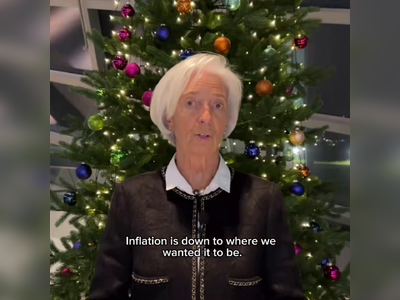Rising Protectionism Threatens Global Trade Stability
Escalating tensions between the United States and China raise concerns over potential long-term disruptions to the global economy.
As financial markets endure significant volatility, the impact of escalating trade tensions between the United States and China is becoming increasingly pronounced.
In particular, financial fluctuations have echoed trends not witnessed in a decade, suggesting a fragile global economic landscape.
Reports indicate a potential decrease in U.S. tariffs from 50% to 55% against Chinese imports, which, while momentarily buoying market sentiment, conceals ongoing structural tensions between the two powers, particularly as Beijing denies any current negotiations.
Since the re-election of Donald Trump, U.S. tariffs have increased significantly, with approximately 10% tariffs imposed on nearly all U.S. trade partners, including Monaco, alongside Chinese tariffs reaching 125% on American goods in retaliation.
This protectionist cycle poses substantial risks to the global economy, particularly for economies like Monaco that are heavily reliant on international trade.
In 2024, the United States imported around $438 billion worth of goods from China.
The current high levels of taxation are contributing to elevated prices, driving inflation higher and jeopardizing consumer spending.
Companies with significant exposure to Chinese markets, including major firms such as Apple and Tesla, face pressing challenges to maintain profitability against this backdrop.
Notably, Trump reprieved reciprocal tariffs for 75 countries for 90 days as of April 9, 2025, in a bid to alleviate pressure; however, the underlying economic realities remain stark.
Bond markets are reacting to these pressures, as rising interest rates reflect fears of persistent inflation and economic downturns.
The speculation surrounding "super bonds"—century-long U.S. government bonds—highlights the growing challenges faced by the U.S. in managing its massive $9 trillion debt.
Market analysts warn that the ongoing tariff disputes risk evolving into broader monetary and technological conflicts, which could lead to lasting instability in global markets.
Jerome Powell, the chair of the Federal Reserve, emphasized the risks of sustained inflation stemming from prolonged tariffs.
In this environment, the potential for economic warfare extends beyond tariffs to threaten the foundation of global trade.
Pierre-André Chiappori, adviser to the Minister of Finance and Economy for Monaco, highlighted the inherent vulnerabilities of smaller, highly interconnected economies during this tumultuous phase.
While Monaco's direct exposure to U.S. tariffs may be limited, Chiappori warned about the potential for wider retaliatory measures among other major economies such as the European Union, China, and members of the BRICS coalition.
Monaco, a microstate characterized by its economic ties to the global market, particularly in sectors like finance, luxury real estate, and tourism, stands to be affected by the repercussions of a prolonged trade war.
An uptick in global inflation, paired with constraints on credit access due to higher interest rates, poses threats to key sectors of the Monégasque economy.
Even affluent individuals—Monaco’s primary clientele—may reconsider their spending amid international economic instability.
Amid ongoing uncertainties, the dynamics of the trade conflict suggest a need for careful monitoring and potential strategies for adaptation.
With global supply chains increasingly strained, a sustained period of high tariffs may prompt deleterious effects on international commerce and overall economic growth.
In a global context, the trade war is altering capital flows and investment patterns, raising logistical and financial challenges for open economies worldwide.
Such developments necessitate vigilance and strategic positioning for economies like Monaco, exposed to the potential fallout from unresolved international trade disputes.
In particular, financial fluctuations have echoed trends not witnessed in a decade, suggesting a fragile global economic landscape.
Reports indicate a potential decrease in U.S. tariffs from 50% to 55% against Chinese imports, which, while momentarily buoying market sentiment, conceals ongoing structural tensions between the two powers, particularly as Beijing denies any current negotiations.
Since the re-election of Donald Trump, U.S. tariffs have increased significantly, with approximately 10% tariffs imposed on nearly all U.S. trade partners, including Monaco, alongside Chinese tariffs reaching 125% on American goods in retaliation.
This protectionist cycle poses substantial risks to the global economy, particularly for economies like Monaco that are heavily reliant on international trade.
In 2024, the United States imported around $438 billion worth of goods from China.
The current high levels of taxation are contributing to elevated prices, driving inflation higher and jeopardizing consumer spending.
Companies with significant exposure to Chinese markets, including major firms such as Apple and Tesla, face pressing challenges to maintain profitability against this backdrop.
Notably, Trump reprieved reciprocal tariffs for 75 countries for 90 days as of April 9, 2025, in a bid to alleviate pressure; however, the underlying economic realities remain stark.
Bond markets are reacting to these pressures, as rising interest rates reflect fears of persistent inflation and economic downturns.
The speculation surrounding "super bonds"—century-long U.S. government bonds—highlights the growing challenges faced by the U.S. in managing its massive $9 trillion debt.
Market analysts warn that the ongoing tariff disputes risk evolving into broader monetary and technological conflicts, which could lead to lasting instability in global markets.
Jerome Powell, the chair of the Federal Reserve, emphasized the risks of sustained inflation stemming from prolonged tariffs.
In this environment, the potential for economic warfare extends beyond tariffs to threaten the foundation of global trade.
Pierre-André Chiappori, adviser to the Minister of Finance and Economy for Monaco, highlighted the inherent vulnerabilities of smaller, highly interconnected economies during this tumultuous phase.
While Monaco's direct exposure to U.S. tariffs may be limited, Chiappori warned about the potential for wider retaliatory measures among other major economies such as the European Union, China, and members of the BRICS coalition.
Monaco, a microstate characterized by its economic ties to the global market, particularly in sectors like finance, luxury real estate, and tourism, stands to be affected by the repercussions of a prolonged trade war.
An uptick in global inflation, paired with constraints on credit access due to higher interest rates, poses threats to key sectors of the Monégasque economy.
Even affluent individuals—Monaco’s primary clientele—may reconsider their spending amid international economic instability.
Amid ongoing uncertainties, the dynamics of the trade conflict suggest a need for careful monitoring and potential strategies for adaptation.
With global supply chains increasingly strained, a sustained period of high tariffs may prompt deleterious effects on international commerce and overall economic growth.
In a global context, the trade war is altering capital flows and investment patterns, raising logistical and financial challenges for open economies worldwide.
Such developments necessitate vigilance and strategic positioning for economies like Monaco, exposed to the potential fallout from unresolved international trade disputes.











